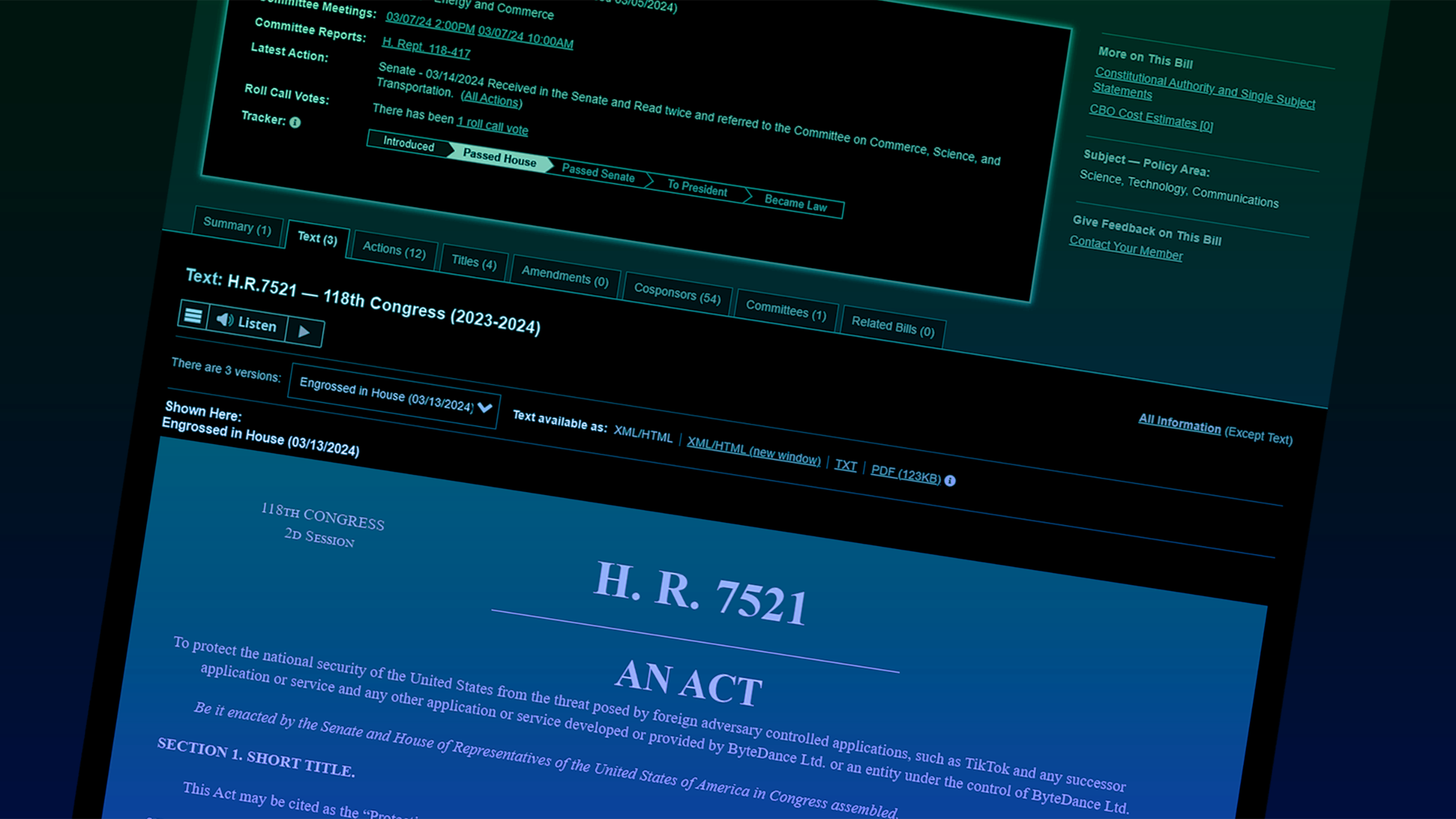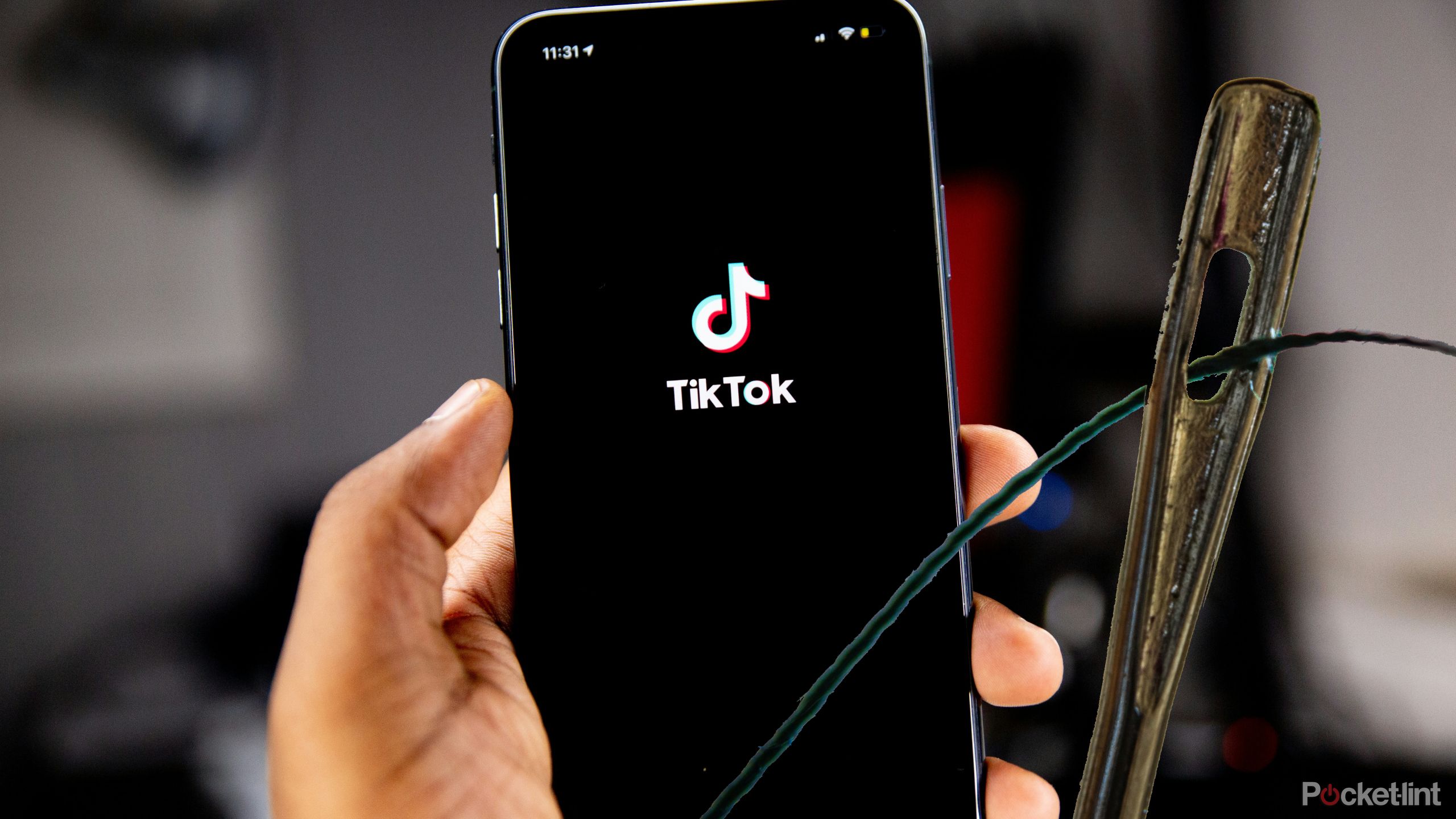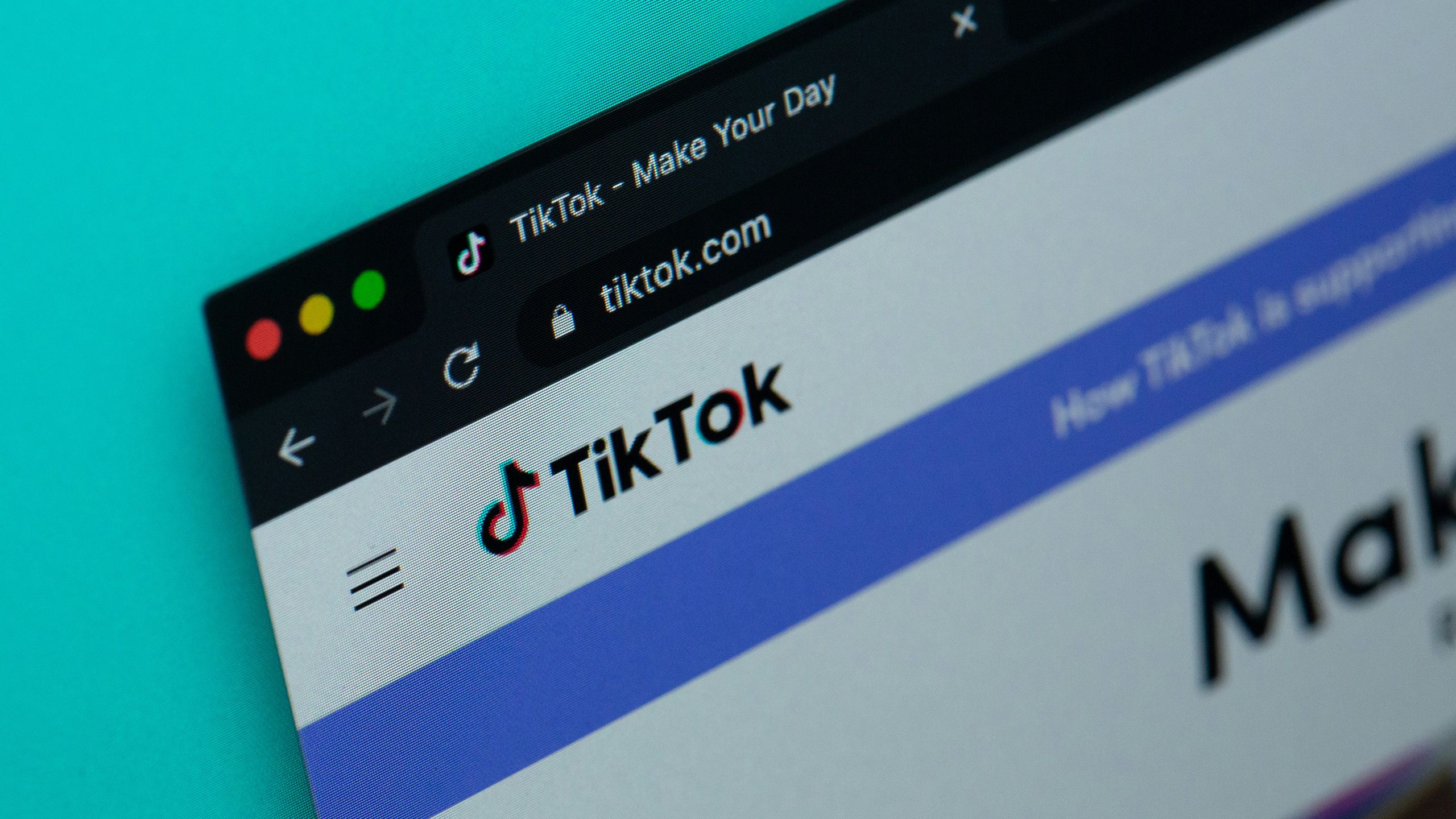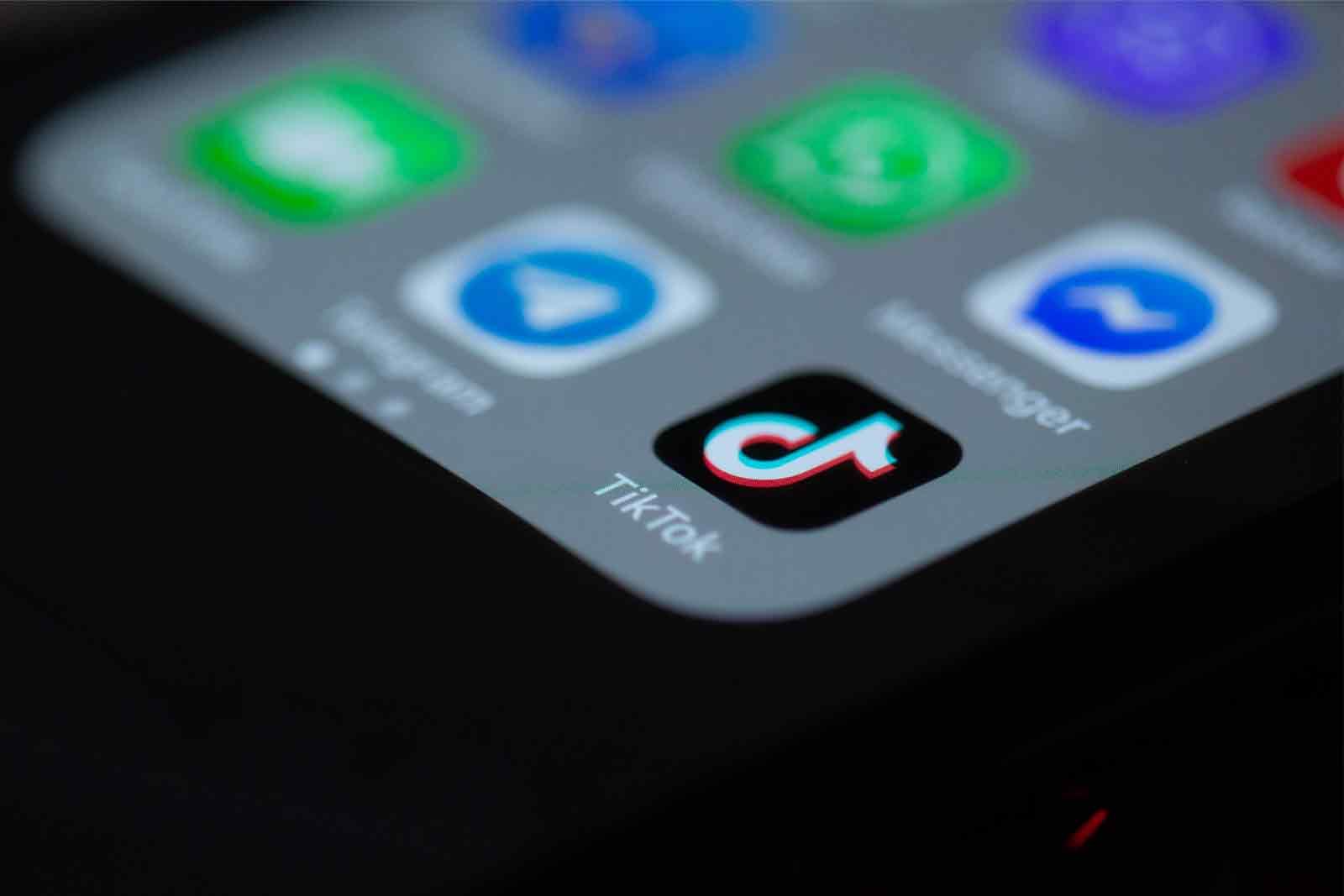Main points
- U.S. lawmakers support a bill to force ByteDance to sell TikTok or face a ban.
- As the bill heads to the Senate, its future remains uncertain.
- TikTok’s potential ban is sparking a backlash from users and influencers.
TikTok’s future in the United States is currently up in the air.
The U.S. House of Representatives just voted on a bill that would require TikTok’s Chinese owners to sell the app within a certain period of time or face a ban in the United States. Policymakers are worried about Americans’ security and privacy, but whether the bill becomes law depends on its passage in the Senate, where its future remains uncertain, and then on to President Joe Biden’s signature. In the meantime, users are unlikely to see changes immediately, but the prospect of a ban still raises questions.
Many are wondering what happens next — who might buy it, legal obstacles, and how a ban might affect users and influencers.
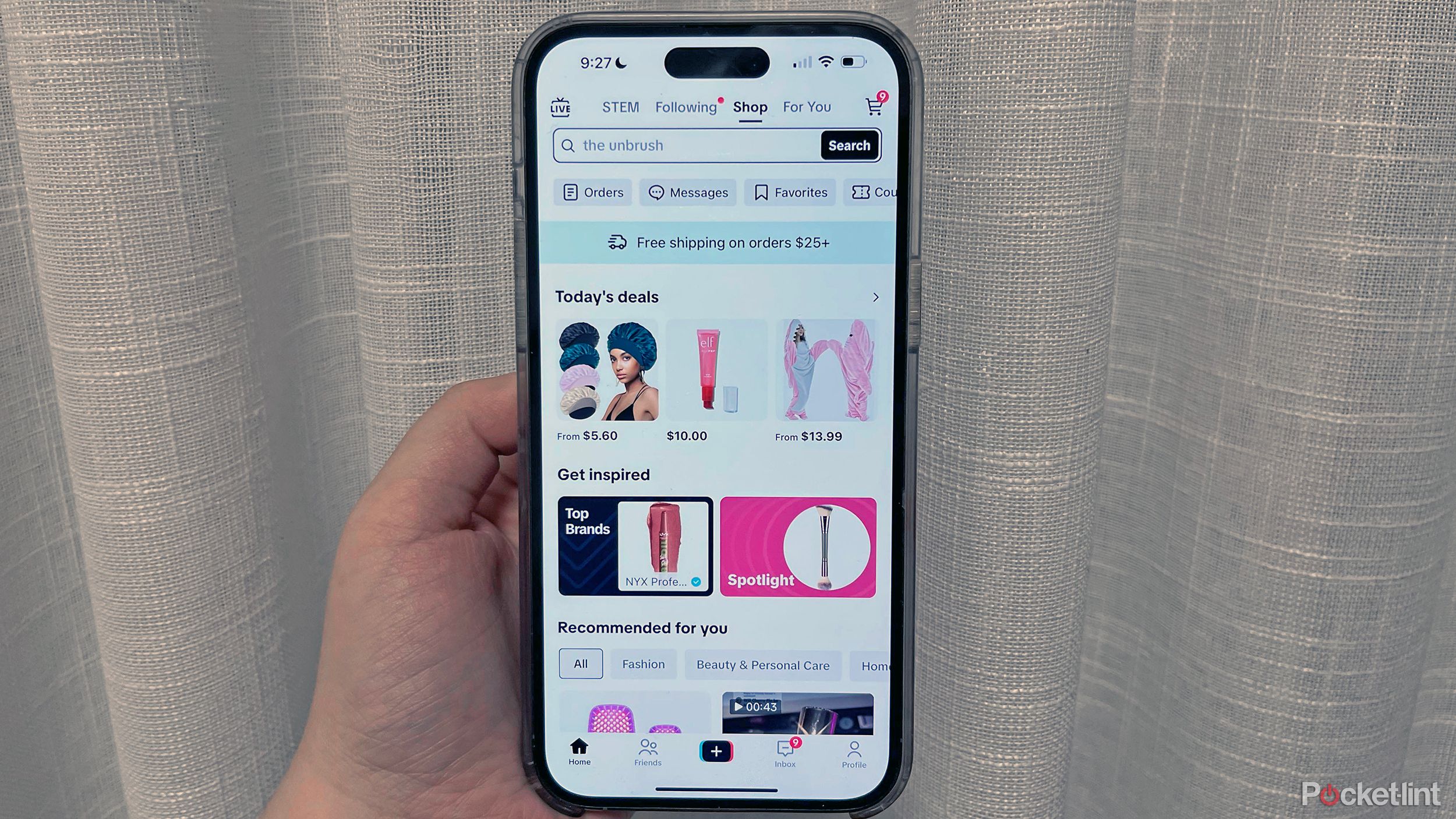
What is a TikTok store?I tried it, for research purposes
Wondering how a TikTok store works and whether it’s safe? A few weeks ago, I bought a jumpsuit from a seller’s TikTok store to find out.
1 There is bipartisan support for selling or banning TikTok
Political leaders on both sides of the U.S. want ByteDance to sell TikTok
pocket plush
The bill, called the Protecting Americans from Apps Controlled by Foreign Adversaries Act, passed with bipartisan support on Wednesday morning in a 352-65 vote despite TikTok’s efforts to mobilize its 170 million U.S. users against the bill. The House passed. The bill requires TikTok’s Chinese owner ByteDance to sell the app to a non-Chinese entity within six months or face a total ban in the United States. that’s right. American politicians will not agree on common-sense safety measures — tragedy after tragedy — but both Republicans and Democrats support the bill.
Republican leaders including Rep. Elise Stefanik voted in favor, aligning with Democrats who saw the bill as a necessary step to address national security concerns related to TikTok’s Chinese ownership. The bill, which also has the support of House Speaker Mike Johnson and former Speaker Nancy Pelosi, will now go to the Senate for further consideration.
This marks the first time Congress has passed a bill targeting social media platforms. The biggest problem with TikTok is its Chinese ownership. U.S. officials worry that U.S. users’ personal information could end up in the hands of Beijing. Opponents of the bill raised free speech concerns and pointed to TikTok’s measures to protect user data on U.S. servers. But supporters argue that if forced by Chinese authorities, ByteDance could be forced to share data, posing a significant risk to national security.
If the bill becomes law and ByteDance does not sell the app, it will become illegal for app stores and web hosting companies to offer TikTok. The TikTok ban will gradually render TikTok unavailable and users unable to receive updates. However, there are legal and technical challenges to the ban, including potential court action and workarounds such as virtual private networks.

How to do the Gen Z Zoom everyone on TikTok is talking about
Gen Z Zoom is the latest trend taking TikTok by storm. Here’s how to do it in a TikTok video, and how it differs from the cheugy Millennial Zoom.
2 The bill has been sent to the Senate, with an unclear path
Will Chuck Schumer put it to a vote?
ROCCO STOPPOLONI and Solen Fey collaborate on Unsplash
The bill’s legislative process still faces uncertainty, including reaching the Senate.
While President Biden has expressed a willingness to sign the bill, the Senate has been slow to move, and some senators have expressed reservations about rushing a decision. Majority Leader Chuck Schumer has been noncommittal about bringing the bill to a vote, and other senators such as Democrat Maria Cantwell have expressed doubts about the bill’s constitutionality and its impact on civil liberties. expressed concern about the potential impact. Still, bipartisan support in the House and pressure from the White House to act quickly could influence the Senate’s position.
Even if it passes the Senate, it is expected to face legal challenges due to the complexities of international technology regulation and concerns about infringements on free speech. Additionally, if the bill becomes law and ByteDance ends up selling TikTok, big companies like Google and Meta may step in to acquire it. This will set off alarm bells—like antitrust alarm bells. Although President Biden has said he would be willing to sign the bill if it reaches his desk, his administration is not too keen on making the tech industry become more consolidated.

How to create an AI LinkedIn avatar using TikTok’s viral trend
If you’re looking for an AI avatar generator for perfect LinkedIn photos, try the popular Remini app on TikTok.
3 TikTok has a lot of national security concerns
Are they real or fake?
Soren Feisa/Unsplash
Many in Washington are concerned that TikTok could be used by the Chinese government for espionage or a widespread disinformation campaign in the United States.
While there is no evidence directly linking TikTok to such activity, past incidents involving ByteDance employees spying on Americans through the app have raised concerns. Additionally, there are concerns that Beijing may manipulate TikTok’s algorithm to influence users’ views of content. Despite TikTok’s efforts to address security concerns, such as transferring U.S. user data to Oracle-controlled servers, skepticism remains, especially about the impact of Chinese law on data-sharing practices.
National security officials claim that any solution short of complete divestment from China is unacceptable.
Supporters of the bill argue it is vital to maintaining national security and point to concerns about China’s control of sensitive user data. They believe ByteDance could be forced to share data if pressured by Chinese authorities, posing a significant risk to national security. Rep. Mike Gallagher stressed the need for “common-sense measures” to protect national security, while critics such as Rep. Maxwell Frost expressed concern that the bill infringes on First Amendment rights.
Critics are also concerned about the bill’s effectiveness in addressing potential data security concerns.

How to fast forward TikTok videos to watch at 2x speed
TikTok hasn’t officially announced this hidden gem of a feature, but you can fast-forward TikTok videos to watch them at twice the speed.
4 Users are responding to the possibility of a TikTok ban
TikTok and many of its users are not happy
TikTok is used by an estimated 5 million businesses to reach customers, so a potential ban has triggered a wave of concerns from its influencers and users, who fear damage to their businesses and online communities. Many influencers who rely heavily on the platform for revenue and connection with their audiences have rallied against the ban, arguing it will severely impact their livelihoods. The hashtag #TikTokban currently has nearly 400,000 videos related to it.
“If they banned it, I don’t know what would happen,” Summer Lucille, a TikTok creator with 1.4 million followers who visited Washington this week, told The Associated Press in an interview. “It would be Devastating.” Former US President Donald Trump has also turned against banning TikTok, contrary to his previous efforts while in office. He’s opposed now mainly because he thinks it might help Facebook and Mark Zuckerberg, and he doesn’t think it’s good for them. dislike. Also implicated are the financial interests of Republican billionaires and the lobbying efforts of former aides.
Shou Zi Chew, also known as Chew Shou Zi, who has been the CEO of TikTok since 2021, recently shared a video on the official TikTok channel expressing his disappointment with the bill and its passage in the House of Representatives. He also encouraged users to contact senators to protect their constitutional rights and make their voices heard. The video is now automatically and continuously available to millions of users via the “For You” page. I’ve watched the video 3 times in the past 24 hours, and I don’t follow TikTok’s channel on the platform.
To be clear, previous attempts to restrict TikTok in the United States, such as Montana’s outright ban, have faced legal challenges, with courts ruling against such measures on constitutional grounds. The complexity of TikTok’s ownership structure, its massive user base and its influence in the social media space make any attempts to limit its operations subject to intense scrutiny and legal disputes. Therefore, even if the bill is passed into law, the ultimate outcome of TikTok’s presence in the United States remains uncertain.
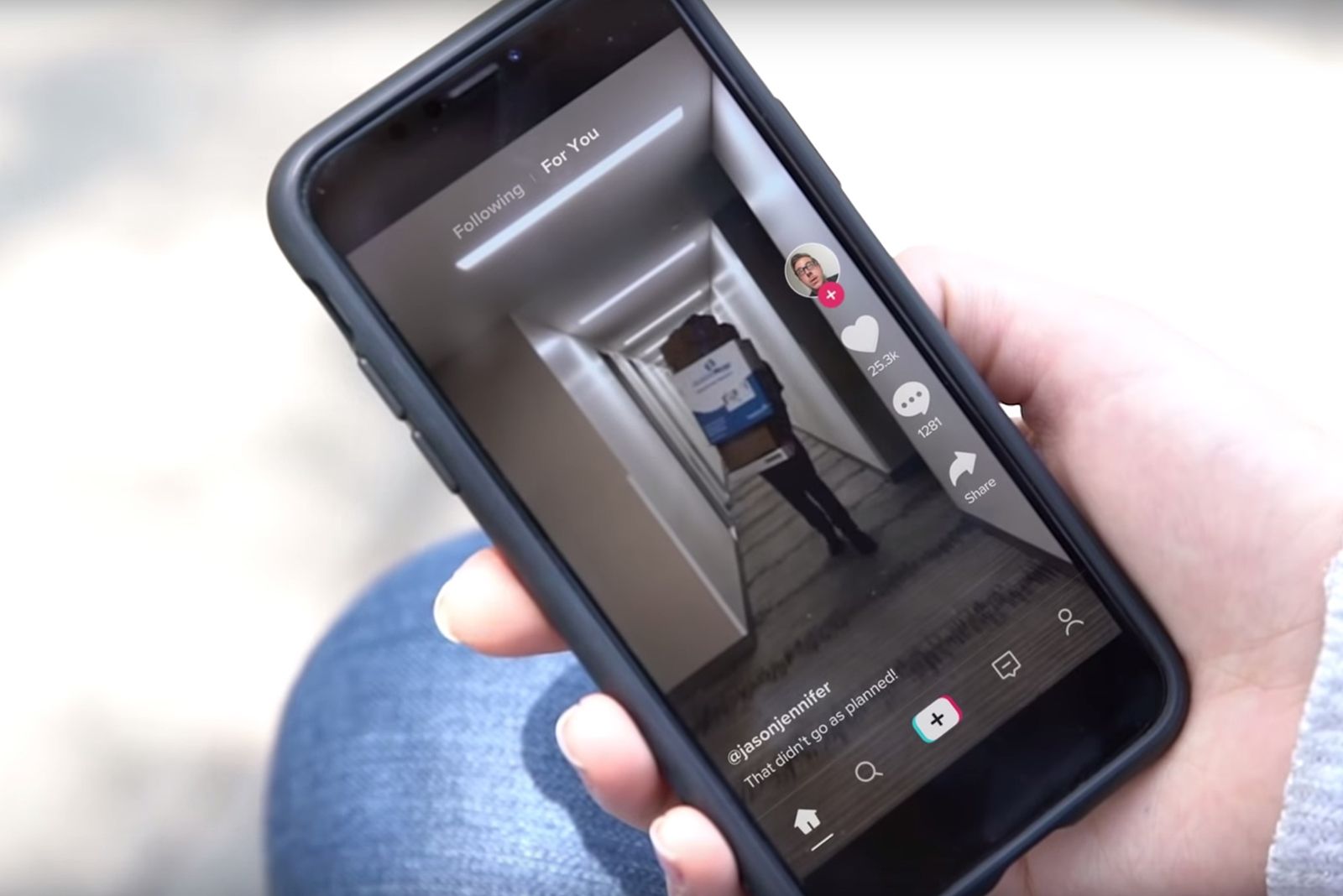
How to scroll through TikTok videos hands-free using voice commands
Want automatic scrolling on TikTok? While the feature doesn’t exist yet, you can avoid physically swiping FYP videos by using voice commands.
5 TikTok is still for sale, but who will buy it?
let’s think about it
Solen Fey owns Unsplash
While potential buyers exist, overcoming regulatory and geopolitical obstacles poses significant challenges.
If the TikTok bill becomes law, it would ban the distribution of apps developed by ByteDance and its subsidiaries unless TikTok is divested within 180 days. However, the legality and feasibility of this measure face significant obstacles. Any potential sale of TikTok is complicated by its high valuation. A forced sale of TikTok by ByteDance could lead to acquisitions by major tech companies such as Google, Meta, Microsoft or Amazon – but such a sale would raise antitrust concerns given the Biden administration’s stance against further entrenching power in the tech industry.
In addition, any sale would require approval from China, complicating the process as China has expressed its opposition to a forced sale. While talks over a TikTok sale have been stalled for years, lawmakers may try to use the House bill to nudge U.S. buyers. Additionally, TikTok CEO Shou Zi Chew said the company would challenge the bill, which could lead to a protracted legal battle that could delay or change implementation of the proposed restrictions.
